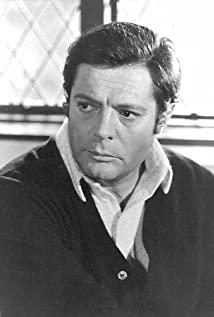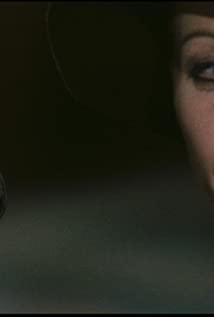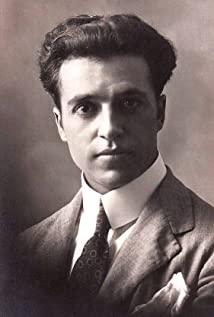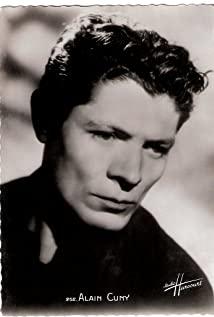At the beginning, the male protagonist is sitting on a helicopter with a statue of Jesus and flirting with a group of sexy girls basking in the sun on the roof. This opening has clearly demonstrated the theme and temperament of the movie. Faith is gone, and the age of entertainment and money is growing. This classic opening is as famous in the history of film as the opening line of "One Hundred Years of Solitude" is in the history of literature. This also fully reflects what is called the charm of the film.
As an entertainment reporter, the male lead has a decent life. There are rooms, there are roadsters, and you can date and have sex with all kinds of high-society women. He's flirtatious, charming, and can flirt with almost any woman. The first major sequence is his date and flirtation with the American blonde actress behind their respective partners. This section is very romantic, the interaction between the two, especially the scene where the two are in the fountain pool in the square. In the middle of the night when it was raining heavily, the two of them were in the fountain pool. Seeing that the kiss and the follow-up work were about to happen, suddenly and without warning, the time changed from midnight to daytime. The two were still standing in the fountain pool, far away. A passerby on a bicycle stopped to watch, and the atmosphere was awkward. Such a time management method is genius. Of course, the male protagonist is still beaten up by the female movie star's boyfriend. When the male protagonist sent the female movie star back to his residence, he was discovered by the female movie star's boyfriend. The boyfriend scolded the female movie star and then beat the male protagonist. There were always four or five newspaper reporters (paparazzi) around the filming, jumping like a monkey. From a different angle, it's both comical and ironic. This section also fully expresses the male protagonist's unrestrained and unrestrained character image, ignoring his fiancee.
The second largest segment, where tens of millions of people gathered to watch a religious ceremony performed by a child claiming to be able to see the Virgin Mary. An older couple prayed under the sacred tree that their seriously ill child could be rescued. In the end, it rained heavily, and everyone still didn't even see a hair of the Virgin Mary under the play-like guidance of the two children. In the end, the critically ill child died in the heavy rain. With such blatant satire and criticism of religion, it's not hard to imagine how the audience scolded the film in the first place. At the same time, when I think of the beginning of the movie, in addition to expressing the passing and collapse of faith, the Jesus who was pulled away by helicopter may also have another meaning, that is, the questioning and denial of religious belief.
In the third paragraph, the male protagonist brings his fiancée to a friend's house after a long absence. Obviously, the male protagonist's friend is a successful man with artistic taste, and the guests at home are also full of artistry. There are young women playing musical instruments, old people chattering about oriental art, and there are female poets who are unmarried and advocating freedom. Obviously, the male protagonist likes to stay here, and he likes to stay with a group of free and artistic people. Because he always wanted to be a writer, not a journalist. So he asked his friends if they could visit often. But a friend said: The life of the bottom is far happier than the life of the upper class with a mask. Then my friend took the male lead to the child's bedroom. The friend kindly stroked his child, then walked to the window and said melancholy: I don't like tranquility, because tranquility is false, it will make me fearful and anxious . If I ask my child what will happen tomorrow, he will say that tomorrow will be better, but what if tomorrow is the end of the world? These two sentences laid the groundwork for him to later kill his own children and commit suicide. There is another detail. At a friend's house, the male protagonist's fiancee affectionately asked the male protagonist if they would be as happy as the family of his friend and his wife. The male protagonist turned his head in disgust without saying a word. Obviously, his fiancée can cook and have sex, (the main complaint of the male protagonist to his fiancée when they quarreled in the car later), but there is not much culture, and they can't communicate more spiritually, so in such an environment Next, the male protagonist is even more disgusted.
In the fourth paragraph, the male protagonist and his father are partying in a nightclub. Apparently, my father was more romantic than him. . . Even the male protagonist was stunned when he flirted with a dancer in a nightclub. . . He has rarely seen his father come home since he was a child. (The ghost knows how many lovers his father has kept outside.) He has always wanted to communicate with his father, but his father does not seem to appreciate it, and he does not even want to visit his son's house. Refused his son's retention, insisted on catching the morning train home. The lack of fatherly love and the failure of communication make the male protagonist suffer.
In the fifth paragraph, the male protagonist came to the castle of his female friend's fiancé as a guest. The guests were all wealthy and powerful people in high society. Everyone was playing the game of catching ghosts. During this period, a female friend of the male protagonist confessed to the male protagonist across the room, and the male protagonist also confessed to her excitedly, but in fact it was just a prank by the female friend, the woman was listening in the other room. The male protagonist's confession is while making out with another man. All the guests in the upper class were playing boring games, and the male protagonist finally succeeded in spending a spring night with the female player who took the initiative to seduce him. Absurd, boring, rotten night.
In the sixth paragraph, the male protagonist's friend shot and committed suicide, leaving his wife alone. It's ironic that a family that seemed so successful and happy before ended up like this. The passage of reporters besieging the wife of the suicide victim once again nakedly shows this society that eats human blood and steamed bread.
In the seventh paragraph, finally, the male protagonist was desperate, he broke down, and he went to self-exile. He attended a party that his friends threw at the villa, and the people at the party were insane, drinking alcohol for water, and looking crazy. And the male protagonist is one of the best. He even instructed his friends to pair up for sex, with blatantly lewd remarks. Then he sprinkled the feathers from the pillow on the wriggling woman on the ground, turning her into a feathered chicken. The guests staggered away one by one, and the male protagonist continued to sprinkle feathers into the air. The high-class society is full of money and money, and the extravagant side is fully presented at this time.
Finally, the dead fish (rainbow) that everyone salvaged in the sea. The first and last echoes, the collapse of faith, the era of nothingness. The dead fish's eyes were wide open, staring at these people and the world. The waiter girl he called an angel who he met while typing and writing an article in the restaurant before appeared on the beach in the distance. She was saying something to the man and gesturing. But because the waves were too loud, the male protagonist could not hear and understand what the girl said. In the end, the male protagonist turned around and left with his friends, and continued to enjoy the sweet life. In the last shot, the girl called an angel is kind, innocent, and her clear eyes look in the direction where the male protagonist left. . .
A new day is still a sweet life.
View more about The Sweet Life reviews











